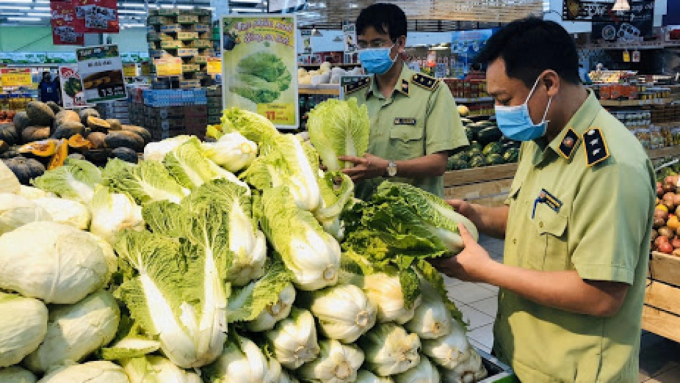May 21, 2025 | 10:31 GMT +7
May 21, 2025 | 10:31 GMT +7
Hotline: 0913.378.918
May 21, 2025 | 10:31 GMT +7
Hotline: 0913.378.918

Payment is made to producers, individuals, and businesses engaged in food exports and imports when they submit dossiers to competent organs for appraisal and approval of permits of circulation, import, and published food safety certifications; appraise and issue certificates for exported food; appraise and grant certificates of eligibility for food.
Fees for evaluation and licensing of circulation, import, certification, and publishing in the area of food safety were stated in the circular. The cost for the evaluation of registration dossiers for health protection foods, medical nutritional foods, foods for special diets, and nutritional goods for children up to 36 months of age is VND1.5 million per product.
The fee for appraisal of dossiers for registration of product announcements for mixed food additives with new uses, food additives that are not on the list of permitted food additives or are not used by the appropriate users in accordance with Ministry of Health regulations, is VND500,000 per time and per product.
Fees for food shipping confirmation (excluding testing expenses) vary between VND 300,000 and VND 10 million per lot.
The cost for assessing and issuing certifications for exported food (free sale certificates, export certificates, and medical certificates) is VND1 million per certificate.
The fee for evaluating the circumstances for practicing and doing business in the area of food safety ranges from VND 500,000 and 28.5 million each time.
According to the circular's provisions, if the fee-collecting organization is a public non-business unit or a state agency that is assigned operating expenses from toll collection, 70% of the fees collected may be used to cover prescribed expenditures, with the remaining 30% going to the state budget.
If the fee-collecting organization is a state agency that is not permitted by law to deduct operational costs from fee collections, it must deposit the full fee collection into the state budget. The source of funds for service supply and fee collection must be determined by the state budget in the collecting organization's budget estimate in accordance with state budget spending regulations and standards.
Food safety has long been a priority for ministries, agencies, and the whole community. As society develops, customer demands increase, necessitating the involvement and duty of producers and companies in tighter enforcement of food safety and production transparency laws.
Translated by Sammuel Pham

(VAN) Dong Thap farmers attained an average profit margin of 64% during the summer-autumn 2024 crop (first season), while An Giang and Kien Giang farmers followed with 56% and 54%, respectively.

(VAN) As a doctoral student doing research on renewable energy and electrification at Harvard University, the author shares his musings on electricity, nature, and countryside memories.

(VAN) The decree on Extended Producer Responsibility (EPR) ensures transparent management and disbursement of support funds, avoiding the creation of a “give-and-take” mechanism.

(VAN) Hue City rigorously enforces regulations regarding marine fishing and resource exploitation, with a particular emphasis on the monitoring of fishing vessels to prevent illegal, unreported, and unregulated (IUU) fishing.

(VAN) Hanoi People's Committee has issued a plan on reducing greenhouse gas emissions in the waste management sector with 2030 vision.

(VAN) Vietnam's draft amendment to Decree No. 156 proposes a mechanism for medicinal herb farming under forest canopies, linking economic development to population retention and the sustainable protection and development of forests.

(VAN) In reality, many craft village models combined with tourism in Son La have proven effective, bringing significant economic benefits to rural communities.